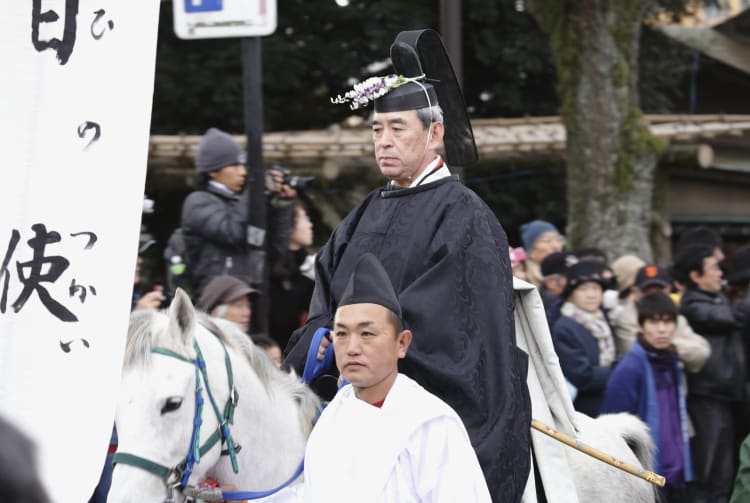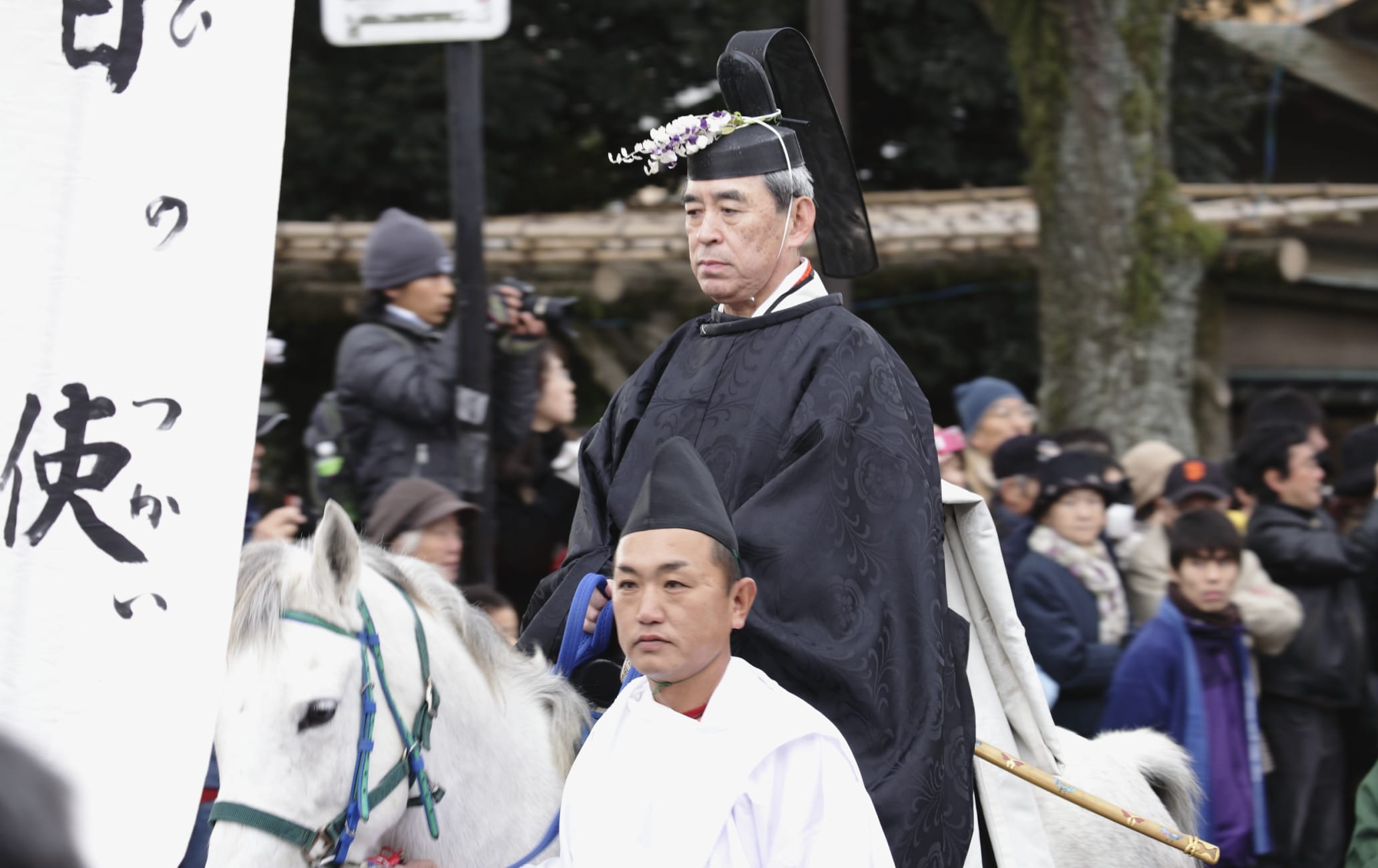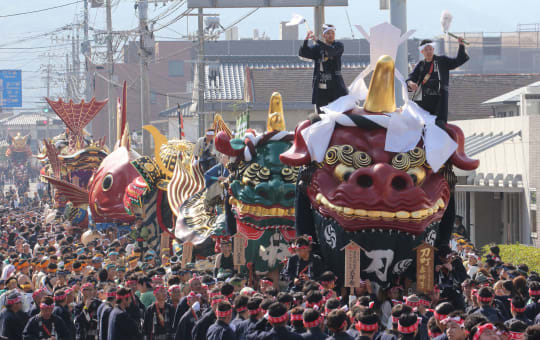Travel through time to feudal Japan
This much-loved winter festival, held since the 12th century, runs from December 15-18. With rich traditions and authentic costumes, it's a great chance to see many different eras of Japanese culture.
Don't Miss
- Many traditional performing arts that visitors rarely get the chance to experience
- The authentic period costumes on display
How to Get There
The venue, Kasuga Wakamiya Shrine, is around a 5-minute walk from Kasuga Taisha Honden bus terminal, where the Nara Kotsu bus from Kintetsu Nara Station stops.
The festival
The festival was originally created to pray away a disease epidemic. It later became associated with guaranteeing a good harvest. Because of the importance of the harvest in ancient Japan, the festival lasts for four days. If you can only make one day, aim for December 17, as it's the main day of the event.
Soak up the musical performances
The various traditional performances such as kagura, music dedicated to the gods, and bugaku, court music with dance, will surely leave you with an appreciation for traditional Japanese music.
The music of the Kasuga Wakamiya On-Matsuri has been designated an Important Cultural Property of Japan. The dances are passed down from one generation to another, and many of these musical performances can only be seen at this festival.
Ancient Japanese fashions
If you are interested in seeing the fashion and culture of bygone eras, the Jidai Gyoretsu (Procession of the Eras) is a must-see.
In this procession, the customs, manners, and clothing of every major period from the Heian period (794-1185) to the Edo period (1603-1868) are authentically replicated. It's a unique chance to see over 1,000 years of art and culture in one place.


























































